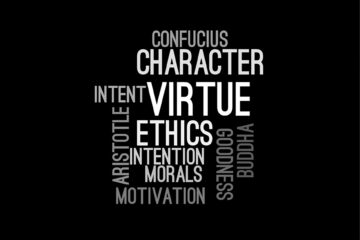![]()
Introduction
With the developments the scope for everything is increasing. With these developments there comes a dire need to have laws. We can say that the concepts are getting broadened in terms of the law. Not only the humans are getting involved in the contracts but also the entities. The businesses are growing on a large scale. Even the entities have certain rights and duties which needs to be followed. When rights and duties arise the ‘person’ becomes a party to a case. There is a need to know what a ‘person’ means under jurisprudence.
Jurisprudence
The word ‘jurisprudence’ is derived from the Latin term ‘juris prudentia’, which means “the study, knowledge, or science of law.” In simple terms, ‘jurisprudence’ means “study of law.” The aspects of jurisprudence include explaining and analysing bodies of law, comparing the law with other fields of knowledge, exploring or revealing the history of the legal concept and finding the answer to “what is law?” and “How the cases are decided by judges?”
Person
‘Person’ is derived from the ‘Persona’, a Latin term. ‘Person’ means any human being or any entity which has certain rights and duties. Under jurisprudence, a person can be natural or artificial. Some natural person (human being) may not be the legal person as they do not have rights and duties as in the case of slaves. Similarly, there are some artificial person like any organisation which is not a human being but enjoys legal rights.
According to Salmond “A person is any being whom the law regards as capable of rights and duties. Any being that is so capable is a person, whether a human being or not, and no being that is not so capable is a person even though he be a man.”
The two types of person –
- Natural
- Artificial
Natural Person
A natural person in law means a living human being recognised by the state as a legal person who is not under anyone’s control. The slaves are not considered as a legal person. A natural person possesses its own legal personality. Even though a person enjoys legal rights from the birth, there are some rights restricted for a certain group. As in India voting rights are available only to the individual aged 18 and above. Also, a person of unsound mind cannot register in an electoral roll. A natural person in the eyes of law can be sued for their wrongful acts and could also avail remedy if their rights are violated. The legal personality of a natural person starts with his birth.
Personality at the time of Birth or Before Birth
A person enjoys his Fundamental right from the birth itself. A child need not have to wait for a long time to get his rights. Even though a child is unaware of his right, law considers him a legal person and grants him the right. Law also grants rights to the person who is not born. As per the Hindu law, a child in the womb of a mother is considered as in existence and is capable of inheriting the property if born alive. In the case of Re Wilmers Trusts Moore vs. Wingfield, (1903), it was held that the child in womb is in existence and is eligible to claim property if born alive. Apart from this right, the law also ensures that if a pregnant woman is under death sentence, she would be hanged only after delivering a child. In such a case execution of the sentence is postponed so that the child is not killed. (Section 416, The Code of Criminal Procedure, 1973). Also, any injury made to the child in the womb is punishable under section 312, 313, and 316 of the Indian Penal Code, 1860.
Personality after Death
‘Actio personalis moritur com persona’ which means “a personal right of action dies with the person” Dead person is not considered as a legal person as he is not capable of enjoying his rights or performing the duties. The moment he died he ceases all his rights and his legal personality. However, the law takes into account three rights associated with a dead person
- Right related to decent burial: Article 21 of Indian Constitution talks about Right to Life which also include right to decent burial. Article 21 not only talks about an individual’s right during his life but also after his death.
- Right related to his reputation: Reputation in the society is all a person wants. If any defamatory matter harms the reputation of the deceased person or his family it will be considered as an offence (Section 499 of Indian Penal Code, 1860).
- Right related to his estate: The property of the deceased gets transferred to another as mentioned in his will. The court may initiate probate proceedings after the death of the person to testify the authenticity of the will.
Animals
Earlier in Greek laws, if animals and trees commit any wrongful act, they were tried in the courts. Also, it has been seen that in ancient Indian stories animals were tried in the courts. However, in modern times this is not the case. Animals are not considered as a legal person as they do not have any rights and duties and hence, they are not persons in the eye of law. However, if any pet animal commits any wrong, the master of the animal will be held liable. He will not be held liable under vicarious liability but would be liable for punishment due to his negligence in not keeping the animal under control. The animals are not liable for their acts and are given protection under “The Prevention of cruelty to animals act,1960”
Artificial Person
An artificial person is a person only in the eyes of law. They are also called as fictitious, juristic person etc. These are not the human beings but due to the rights and duties available to them, they come under the category of ‘person.’ Just like a natural person, some act or omission of an act by an artificial person can lead to serious consequences. Some of the artificial person considered by the law are corporation, idols or deity and Guru Granth Sahib.
Corporation
“A corporation is a legal entity that is separate and distinct from its owners.” A corporation is an artificial person. It has certain rights and duties to be followed. A company becomes liable if it commits any wrongful act. Just like a natural person, a company can sue and can be sued. A company remains in existence for a long time and do not end if its member leaves the company or by death of any member. A company has a ‘perpetual existence.’
Idol
Idol is considered as a juristic person. Not all deity is considered as a juristic person, only the idols in which people believe and worship are juristic person. The idol has the right to owe wealth and property, pay tax and sue and be sued. In the case of Pramatha Nath Mullick vs. Pradyumna Kumar Mullick, 1925[1], the council held that the idol is a juristic person. Under British rule, idols were treated as juristic person. The British Administrators held that all the wealth received should that be of the God/ idol and the priest would be acting as the trustee. Also, in 2010 Allahabad High Court in Ayodhya case ruled that “As in the case of minors, a guardian is appointed and so in the case of an idol, a Shebait or manager is appointed to act on their behalf.”[2]
Guru Granth Sahib
The holy Granth of Sikhs, ‘Guru Granth Sahib’ is the legal person was held in the case of Shiromani Gurdwara Parbandhak Committee vs Som Nath Dass, 2000[3]. The Supreme Court observed that Guru Gobind Singh recognised Guru Granth Sahib as a ‘living Guru’ as it is ‘guiding force of the community’ and Guru Granth Sahib becomes a sacred place of worship in a Gurudwara and people pour their wealth to it. Gurudwara is in existence due to Guru Granth Sahib and they both are not separate legal entities. The court also mentioned that, “Guru Granth Sahib cannot be a juristic person unless it takes juristic role through its installation in a gurudwara or at such other recognised public place.”
This means that to be a legal person, a ‘person’ must be able to own the property or enter into a contract and could be able to sue and get sued in its own name. Only those Guru Granth Sahib can enter into a contract which is kept in Gurudwara or any recognised public place. But the copies of Guru Granth Sahib will not be considered as a legal person and hence cannot enter into a contract. The copies of Guru Granth Sahib kept at home won’t come under legal person as they do not have rights and duties towards others and people do not pour any wealth to the Granth kept at home and hence is not capable of entering into the contract.
There is no difference between legal person and juristic person but the meaning of legal person needs to be understood in-depth. It is to be understood that as per the definition of Salmond, a person must be capable to have rights and duties. A thing kept at home won’t be considered as a person if it does not have any duties and thus won’t be able to enter into a contract as it is not a legal person. A company can enter into a contract and become a legal person only after it receives certificate of incorporation as now it would be having rights and duties towards others.
The scope of legal personality is vast. It can include any object, entity and a mass of property etc. All these can sue and get sued and could be held liable for their wrongful acts.
Difference between Natural and Artificial Person
- A natural person can express their opinion, share their views to everyone and can take decisions whereas an artificial person cannot express their views, a person on behalf of them takes all the decisions.
- A natural person becomes a legal personality from birth whereas an artificial person after getting Certificate of Incorporation becomes a legal personality.
- A natural person is capable of holding public office but an artificial person cannot do so.
- A natural person cannot live endlessly whereas an artificial person can live for a long time. For example, a company can survive until it gets insolvent or is closed only after attaining its objective.
Conclusion
Jurisprudence does not focus on the particular law but on the general laws. Its focus is on the existing laws. The natural person and legal person both has an important role and their rights and duties makes them a legal personality. The privileges of all ‘person’ differs. Whether it is a human being or an organisation, they have different privileges.
References:
[1] Pramatha Nath Mullick vs Pradyumna Kumar Mullick ,27 BOMLR 1064
[2] Juristic Personality of Idols: What’s it all about?
[3] Shiromani Gurdwara Parbandhak Committee vs Som Nath Dass, 2000, AIR 1938



0 Comments